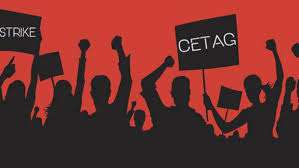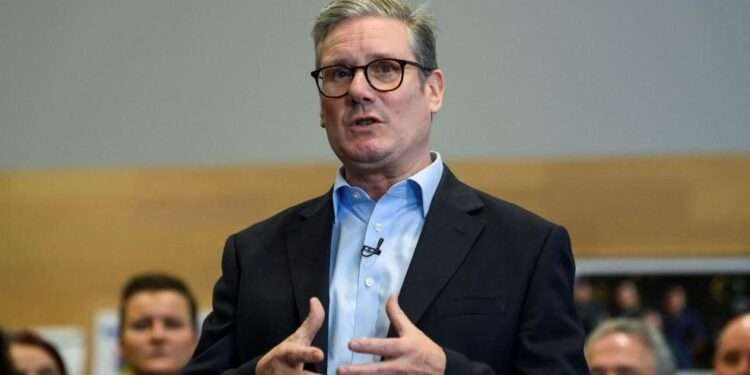Founder of the National Interest Movement (NIM), Dr Foster Abu Sakara, has disclosed that the current democratic system has stimulated the duopoly in Ghana’s elections, by this means closing the political space.
According to him, under the current constitution and a runoff in elections, there is revoting instead of another political party joining forces with the party with the most votes.
He explained that this has prevented minor political parties from being recognised and grow their support base.
“Since we have been voting, we have had to go a second round at least two or three times. In those two or three times, if the constitution allowed for the formation of coalition, then another party would have come with its vote to form a coalition with whoever had the most votes. And it would have been in government championing a particular cause for which it would be recognized and in time, its support base will grow. But we don’t have that option. So, we go and vote again until someone gets 50% plus one. And then the political space shuts because the winner takes all.
“So, it is the very practice of the democracy as we have it that has closed the political space”.
Dr Foster Abu Sakara
Creating opportunities for political parties
Dr Sakara revealed that despite some sort of partnership exhibited in the past among political parties, it has been on a personal rather than an institutional level. Following this, he called for a collaborative effort among parties to champion their ideals.
“The point here is that it has to be an institutional collaboration and not a personal collaboration. We have even had occasions when some members have been made ministers but that was as individuals. How did it affect the standing of their party? So, that is what we have to correct.
“This process is focused too much on individuals and positions and not on the institution of the political parties themselves. So, if you create opportunity for the political parties to have formal partnership and collation, then they can be in government, prosecute agendas that will indeed let the electorate know that I didn’t spoil my vote. This is how other democracies have broadened and been more inclusive”.
Dr Foster Abu Sakara
Reduction of power concentration
In August this year, Dr Sakara called for drastic changes in the nation’s constitution to ensure growth and development. According to him, the current posturing of the constitution acts as impediments to the development of the country.
Dr Sakara revealed that the Movement desires to see also a “reduction in power concentrated at the center”. Furthermore, he advocated for “a reduction in the number of appointments the President alone makes”.
He further maintained that such reduction will equally translate to a reduction in his “influence over independent bodies”.
Dr Foster, as part of his reforms, reckons it will ensure the growth of the economy and insisted that government must adopt a more sustainable position.
He further advised that government must invest revenues in areas of manufacturing, agriculture and other sectors. This, he explained, will be a better alternative as against being in a position of borrowing and spending.
Read Also: US$ 1.7 billion in insurance claims: Sasria on South African riot




















